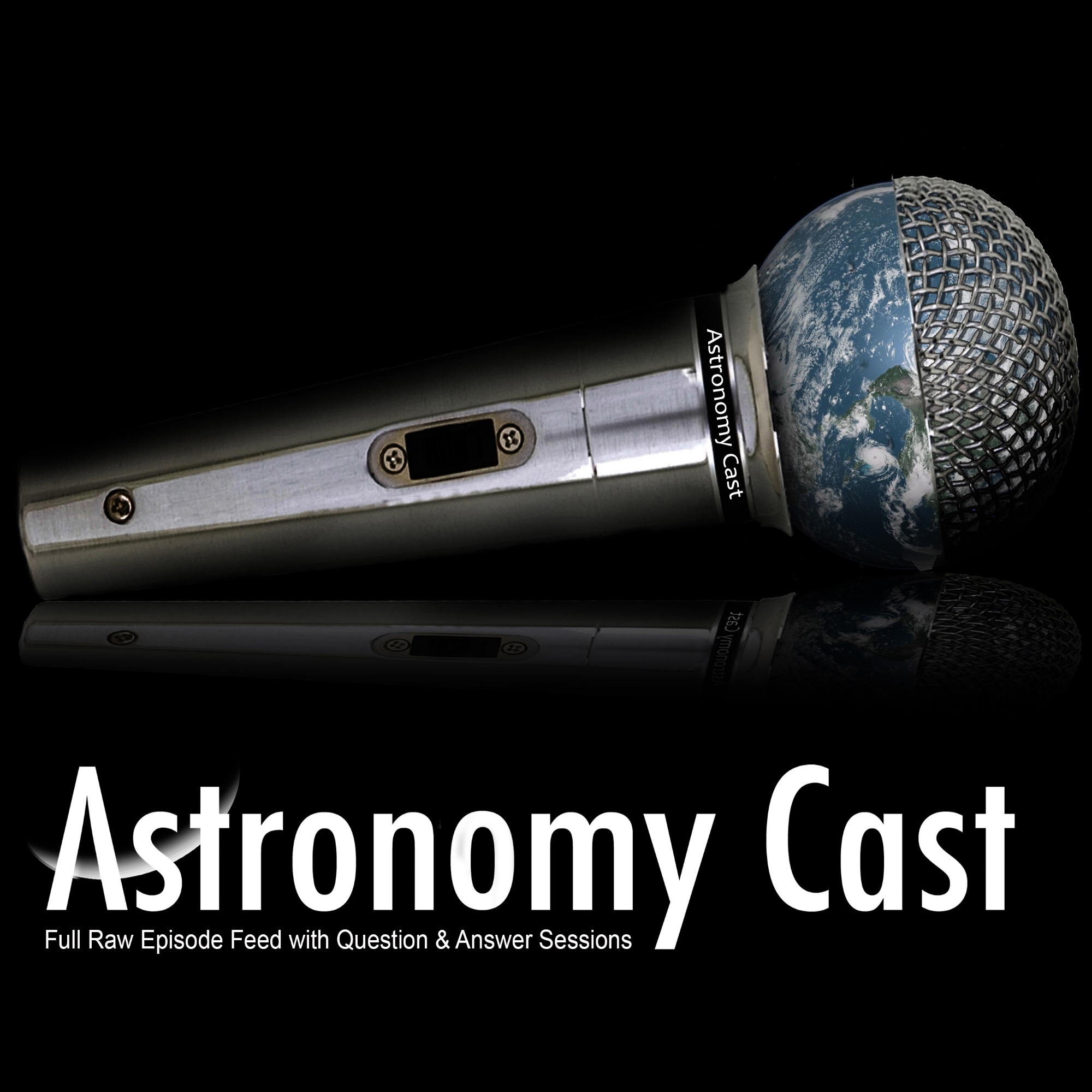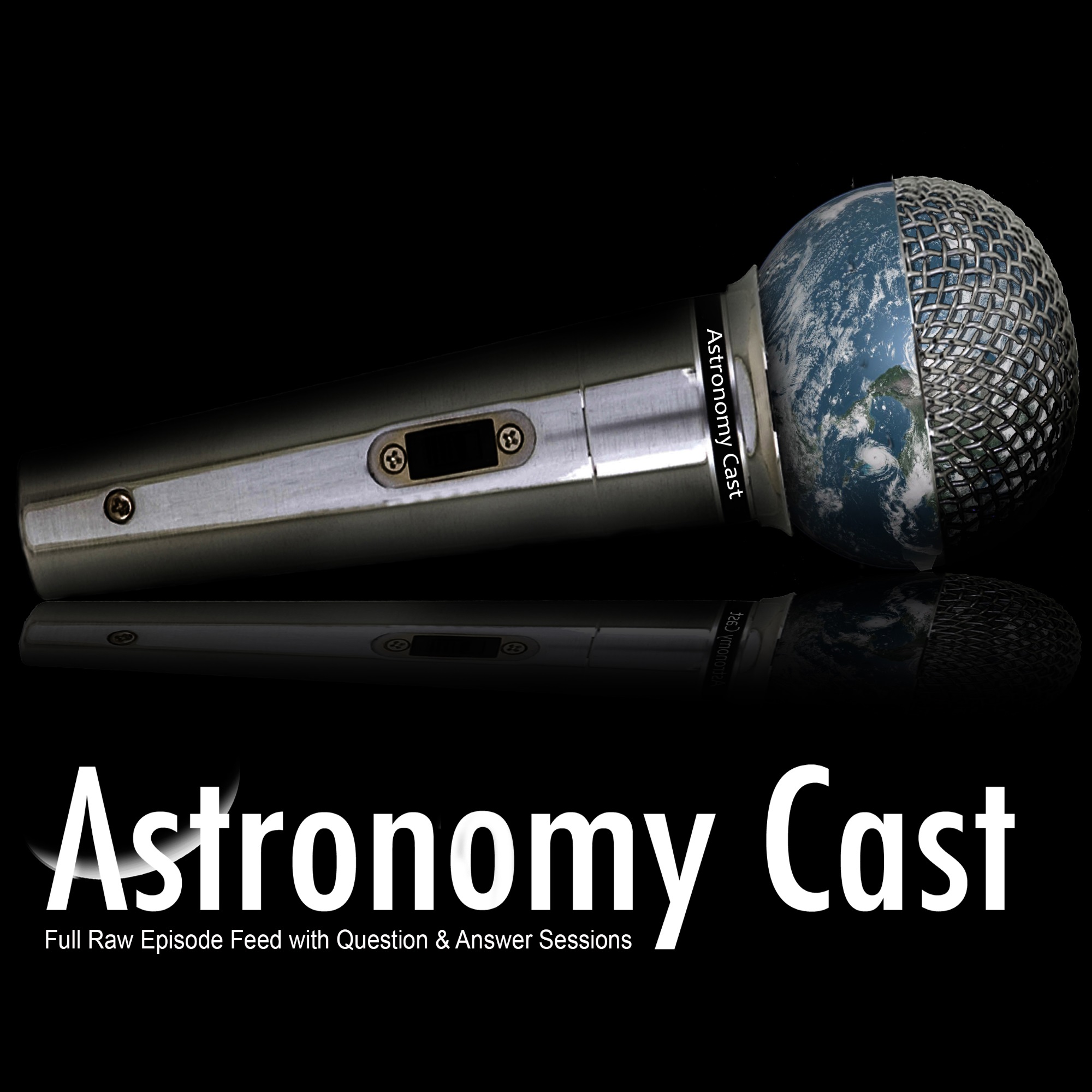
365 Days of Astronomy - Weekly Edition
The weekly podcast from the International Year of Astronomy 2009. This podcast comes out weekly and includes each daily episode of the 365 Days of Astronomy Podcast.
- Update frequency
- every 7 days
- Average duration
- 55 minutes
- Episodes
- 329
- Years Active
- 2017 - 2025

Ep. 585: Super Earths, Mini-Neptunes & Gas Dwarfs
Astronomers are finding even more new extrasolar planets and they're starting to discover entirely new categories. There are classes of planets out there that we just don't have any analog here in th…

Ep. 584: Sample Return Missions From Asteroids
So with a sample of asteroid Bennu firmly inside OSIRIS-REx's return capsule, it's time to bring this treasure home. So scientists can study the composition and history of the space rock. But it's no…

Ep. 583: The 2020 Nobel Prize in Physics
This year's Nobel Prize in Physics was awarded to three brilliant researchers who worked out some of the secrets of black holes. Today we're going to talk about the chain of discoveries that led to t…

Ep. 582: Building Bigger Black Holes
Did you hear the news? Nobel prizes for Black Holes! Now, we know there are stellar mass black holes and supermassive black holes, but how do you get from one to the other? How do black holes get mor…

Ep. 581: Other Kinds Of Novae
Don't ever accuse us of not comprehensively covering every kind of exploding star. This week we gather up all the left over ways that stars partially or fully explode or don't. Probably. Enjoy!

Ep. 580: Exploding Dwarfs
So you think that a white dwarf star is the end of a stellar life, and it's all downhill from there, a long, slow cool down towards the end of everything. But in some situations even dead stars can g…

Ep. 579: White and Black Dwarf Stars
I've got some bad news for you. Stars die. At some point in the next few billion years or so our Sun is going to start heating up, using up all the fuel in its core, and then eventually die, becoming…

Ep. 578: Venus Updates - or - Life on Venus?!?
So have you heard the news? Of course you have. Evidence of phosphene on Venus. Which could be a biosignature of life on our evil twin planet. There have been a lot of surprising stories about Venus,…

Ep. 577: Mars in Opposition
Every 2 years or so Mars lines up nicely with the Earth. It takes only 2 minutes to communicate with the rovers. You can see the polar ice caps in a small telescope. And it's the best time to send yo…

Ep. 576: Summer Stargazing Special
It's time once again for Astronomy Cast to go on hiatus. You've got a couple months on your own to explore the night sky. But before we say goodbye, we'd like to make a few suggestions.

Ep. 575: Observing The Moon
As amateur astronomers, we curse the Moon every month. Seriously! Why doesn't someone get rid of that thing! This week, something occurred to us. What if we actually pointed our telescopes at the Moo…

Ep. 574: Trojan Asteroids
We imagine the asteroid belt as a place where all the rocks hang out in the solar system. But there are 2 huge bands of asteroids that orbit the Sun with Jupiter called the Trojans. And soon we may a…

Ep. 573: Exoplanet Atmospheres
Astronomy Cast Ep. 573: Exoplanet Atmospheres
Not only have astronomers discovered thousands of exoplanets, but they're even starting to study the atmospheres of worlds thousands of light years away.…

Ep. 572: Twists in Planet Formation
Astronomy Cast Ep. 572: Twists in Planet Formation
by Fraser Cain & Dr. Pamela Gay
We're all looking to the next generation of exoplanetary research where we get planets directly. But astronomers are…

Ep. 571: Extreme Binaries
Streamed live on May 22, 2020.
So we're familiar with regular binary stars. Two stars orbiting each other. Simple. Of course the Universe has come up with every combination of things orbiting other t…

Ep. 570: Discovering Comets
Streamed live May 15, 2020.
Discovering comets is one of the fields that amateurs can still make a regular contribution to astronomy. But more and more comets are getting found by spacecraft, automat…

Ep. 566: When Comets Fall Apart
As everyone knows, the Universe owes us a bright comet. There have been a lot of promising candidates, but in the end, they always fail to live up to our expectations. Comets keep on breaking up with…

Ep. 565: When Worlds Collide
So much of our Solar System has been shaped by enormous collisions early on in our history. Seriously, the nature of every planet in the Solar System has some evidence of massive impacts during some …

Ep. 564: Mini Moons
Last month astronomers announced that they had detected a tiny asteroid that had been captured by the Earth's gravity well and had been sharing our orbit for a few years. Today, let's talk about the …

Ep. 563: White Dwarf Mergers
White dwarfs are usually about 60% the mass of the Sun, so it was a bit of a surprise when astronomers found one that was almost exactly twice that. What happens when white dwarfs merge?